Preeti Khicha in Mumbai
With a series of high-decibel launches in the last one year, the most recent one being the government supported Aakash, tablet computers were expected to obliterate the netbook market in India sooner than later.
Yet, after the initial ballyhoo, manufacturers are suddenly in a wait and watch mode, with many of them revisiting their strategies for a fresh onslaught into the Indian market.
The initial sales numbers have been small. India sold close to 2 lakh units in 2011, compared to 65 million units globally. With a range of big and small players, the market has become extremely competitive, but no clear leader is in sight.
Where is the tablet PC market in India headed?
While various estimates indicate Samsung, Apple and RIM (Research in Motion) lead the pack, followed by IT companies like DELL and Acer, the entry of low-cost manufacturers like Beetel that jumped into the fray to ride the anticipated boom, has fragmented the market (the last count being 70 different models) blurring product differentiation.
While players are trying to grapple with the clear value proposition that they can offer a consumer, their experiences offer some interesting lessons.
For Dell and Acer, the biggest learning from the Indian market has been that the tablet PC will continue to be the secondary or tertiary device in the consumer.
Thus the initial euphoria, which was driven by the belief that tablet PCs might eat into the sales of notebooks, has given way to soul searching.
...
Where is the tablet PC market in India headed?
Photographs: Pichi Chuang/Reuters
In fact, both players are reconciled to the idea that unlike in the West, where tablet PC sales to a certain extent have eaten into the sales of notebooks, in India the two will co-exist.
Remember, when it comes to PC penetration, India lags far behind the West. "In India, people are yet to own their first laptop or notebook, let alone a tablet," says P Krishnakumar, executive director (marketing), CSMB, Dell India. And many would much rather opt for a combination of a smart phone and a notebook (instead of a tablet) because of the purpose it serves.
"In the West, where more people are technology savvy, consumers own multiple devices at home. This trend will only be reflected in the five per cent of the IT savvy population in the country," says Krishnakumar.
...
Where is the tablet PC market in India headed?
While Dell claims its 5-inch-screen Streak and the Dell Latitude (meant for enterprises) had a good run, it is silently reworking on a new range of tablets for the Indian market.
Refusing to divulge details about its new products, Krishnakumar says in their current form, tablets will continue to be a niche segment, unless technology brings in "a form factor where there is higher convergence of the laptop and the tablet."
Acer, on its part, has a two pronged strategy for the Indian market in terms of driving sales. It is pushing hard its Windows 7 tablet which has found acceptance in large enterprises because it can be integrated with the Windows operating system (OS) which is widespread in most enterprises.
...
Where is the tablet PC market in India headed?
To push sales further, the Windows 7 tablet is also equipped with a docking keyboard allowing consumers to create content on a tablet, which has been one of the peeves in tablet adoption.
Within enterprises, believes S Rajendran, chief marketing officer, Acer India, sectors such as hospitality, automobile and pharma hold promise. "In many applications in these industries, you do not need to create content but employees can use a tablet as sales catalogues," he says.
In fact, Rajendran also sees a potential in the education space. "Look at the coaching class culture which is so unique to India and a parallel economy by itself," says Rajendran. Many of these institutions have shown interest and could be potential targets for the future.
...
Where is the tablet PC market in India headed?
Likewise, Samsung too thinks the education segment holds promise and will take off in a big way this year. "We are exploring the idea of providing customised digital content for students and our discussion with some universities are in the final stages," says a Samsung spokesperson.
Coming back to Acer, for its other two tablets based on the Android platform, Rajendran sees that the overall Android ecosystem has to evolve to meet the needs of the enterprise space.
This would also mean issues regarding to manageability, security, and compatibility with legacy systems. In the West, the culture of BYOD (bring your own device) is more pervasive and enterprises have started scaling up to address these issues.
...
Where is the tablet PC market in India headed?
Photographs: Mark Blinch/Reuters
RIM's Playbook is pinning its hopes on the soon to-be-unveiled OS which will allow users to enable a feature, Blackberry Balance, which RIM predicts will be a hit with the new-age consumer.
With the BlackBerry Balance feature in play consumers will no longer need to sync their BlackBerry smart phones to access corporate mails.
"With consumerisation of IT devices, employees today want to bring their own devices to work. The BlackBerry Balance allows us to partition their device into personal and corporate, thus allowing flexibility of personal use and security of corporate data," says Sunil Lalvani, director (enterprise sales), Research in Motion.
...
Where is the tablet PC market in India headed?
Photographs: Lucas Jackson/Reuters
The app ecosystem
RIM is also looking to build its app ecosystem on the BlackBerry 10 OS to catalyse sales. This was a strategy that Apple had used to wow consumers with innovative applications.
"We have 30,000 app developers working on apps that will be useful for the enterprise space in sectors like healthcare, FMCG and pharma," says Lalvani.
"In the consumer space, we are differentiating by focusing on the browsing experience. What has worked for us is the multi-tasking between apps and hi-resolution flash enabled software that improves user experience."
...
Where is the tablet PC market in India headed?
HCL Infosystems too hopes to create differentiation for its tablet PC by developing specific applications for different verticals like BFSI (banking, financial services and insurance), education, FMCG and hospitality to push sales.
In fact, HCL is strengthening its marketplace (HCL Me Smart App Store), which will be an eco-system of apps for both consumers and enterprise users. Samsung too believes the application universe will go a long way in catapulting tablet sales.
Thus, to break into the enterprise and education space, the company is working on developing customised applications at its R&D facility in India.
'Content readiness', as Lenovo calls it, is also the top priority for the PC maker. "We believe local content in vernacular languages will also help the market grow," says Rajesh Thadani, director (consumer business segment), Lenovo India.
...
Where is the tablet PC market in India headed?
Price v/s value
Now as the big players tweak their strategies, low-cost tablets from Reliance, Taiwanese brand MSI, Beetel Teletech, LACS, OlivePad, Spice and now the Aakash have queered the pitch in this category. So where is the market headed?
"The market will have three segments based on price: iPad, the sub Rs 25,000 tablet and then Rs 10,000-Rs 15,000 range tablet. The market for these low-cost tablets will not move the same way as the smart phone market, as unlike smart phones, the market is still niche and there is no clear cut usage pattern defined for this device," says Vishal Tripathi, analyst, Gartner.
So getting the right price-specification mix is a critical factor for tablet manufacturers. As Gautam Advani, business head (mobility), HCL Infosystems, points out, "The tablet market, though nascent is extremely commoditised. Unlike the journey of any new category which allows space to breathe for the first few years, this category has evolved differently with a plethora of brands jumping into the market, hawking different functions and forms."
...
Where is the tablet PC market in India headed?
Photographs: Reuters
Analysts argue this might be one reason why Aakash in its current avatar (though at an attractive price) might not sell like hotcakes. "Indians are very conscious of both value and price," says Naveen Mishra, lead analyst (telecom practice), CyberMedia Research.
Alex Huang, country head (systems business group), Taiwan-based Asus, agrees. "We have seen two price points emerging. One is the premium segment, which is clearly led by Apple and second, the Rs 15,000-Rs 20,000 price range, where there are a whole host of players."
This is the reason many brands which had initially priced their tablets higher were forced to reduce prices as consumers in the premium price point were loyal to Apple. In order to escape this price war, Asus has added an important feature.
"Our tablet PCs offer a unique docking solution, that allows users to use the tablet as a laptop, but we will not undercut our price," says Huang.
...
Where is the tablet PC market in India headed?
Display in modern trade is also a challenge for this category. As a Convergence Catalyst report on tablet PCs indicates, "Some OEMs (original equipment manufacturers) are confused whether to position the tablet as an IT or telecom product, leading to different stores displaying it differently. Also, telecom organised channel chains like Mobile Store and Univercell which have recently started selling tablets are struggling with sales as they are unable to provide the necessary retail experience."
The other challenge, as Thadani of Lenovo points out is the wi-fi ecosystem in-store. Many Lenovo stores, for example are not wi-fi enabled making it difficult for sales staff to extoll the tablet PC's true value.
Thus, sprucing up the retail ecosystem, which includes investing in infrastracture and the right kind of people to sell a tablet is top priority for Lenovo this year.
...
Where is the tablet PC market in India headed?
Photographs: Reuters
Consumer education is also critical and Acer is investing heavily in live demonstrations at its IT specialty stores to drive sales. Krishnakumar of Dell explains why consumer interfacing is crucial. "Consumers need constant reminder about the category as the demand is still push-based rather than pull based," he adds.
Of course, a better internet ecosystem (like that in the West) will go a long way in improving tablet sales. As Forrester analyst (mobility) Katyayan Gupta says, "3G connectivity in the West is robust whereas in India it is not the case.
None of the telecom operators have a pan India support in India. The underlying utility of having a tablet is mobility and content consumption and if you are restricted by the fact that you are not connected to the internet, it does not make a good business case to buy a tablet."
...
Where is the tablet PC market in India headed?
Analysts claim device manufacturers also need to devise bundling offers to help push their devices.
"For example Reliance 3G was the first tablet to bundle with 3G and this made a huge impact on sales."
Samsung too is working with operators to ensure consumers have a better experience. "The idea is to allow consumers to spend more timedownloading content to understand the full potential of tablets," says a Samsung spokesperson.
There's rumour in the market that Reliance is preparing to launch a 4G tablet PC at Rs 4,000. If that happens, things will only get more interesting from here.

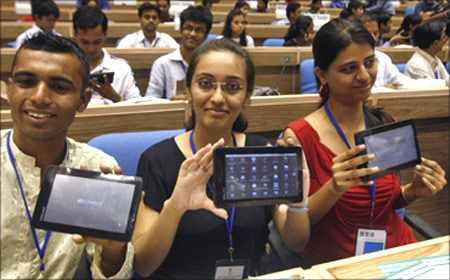
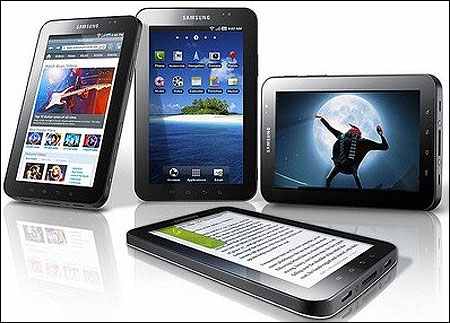
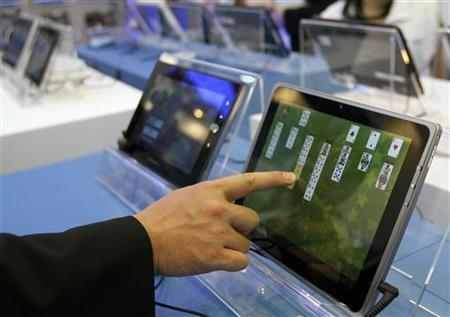
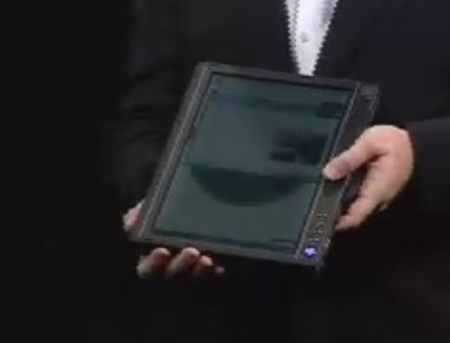
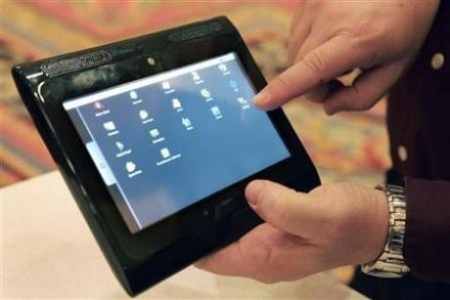
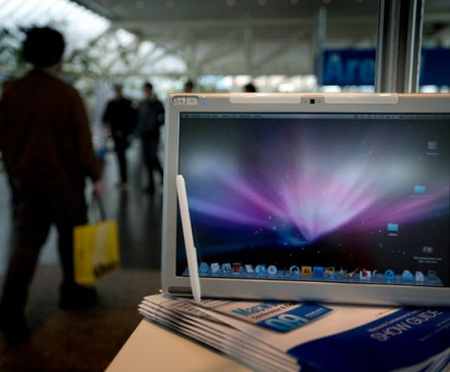

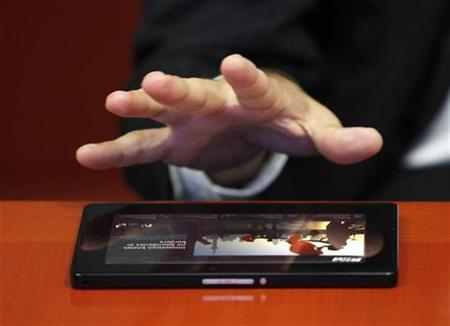
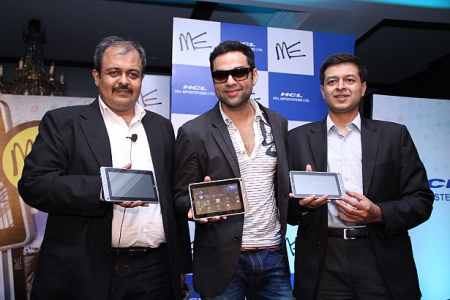



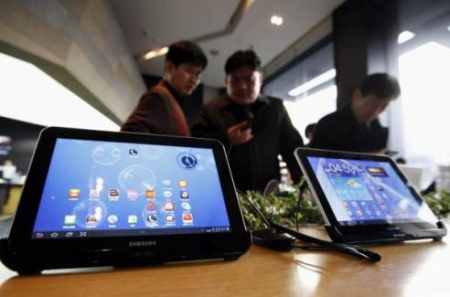


article